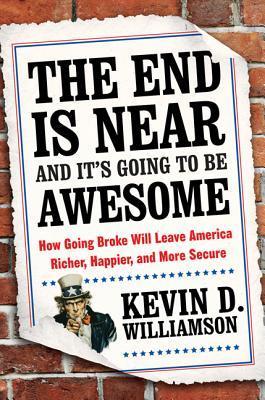What do you think?
Rate this book


240 pages, ebook
First published May 7, 2013
(On the impending bankruptcy of the entitlement/welfare state) The US government is, in an important sense, a promise -- a promise that is not going to be kept.
(On public education) With a market that is literally captive, ensured revenue with no meaningful accountability for performance, above-market compensation rates, heavy political protection from emergent competitors, and the biggest lobbying budget in Washington, the public schools have a setup that no robber baron or mafioso would have dared to dream of -- and summers off, to boot.
The English language has spread throughout the world (it is one of two official national languages of India) not because of unadulterated admiration for Anglo-American culture but because Chinese-speaking, German-speaking, and Hindi-speaking people wish to participate in the global economy, and speaking English makes that a great deal easier. Um, isn't English one of the official languages of India due to a hundred years of British rule in the subcontinent?
Also, Williamson name drops iPhones and Apple and Steve Jobs repeatedly-- was he getting paid for the product placements? He should be, for the amount of times it happens, and it seems out of place in a book that rails against vested interests.
And, several times, Williamson quotes long passages from his source material in which those books quote their source material. Isn't it Writing 101 to only quote primary sources?